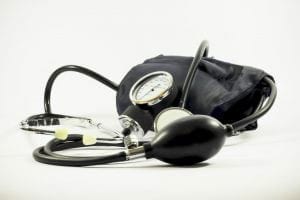In 2019, Japan approved the use of EVRENZO (roxadustat) for patients with anemia of chronic kidney disease (CKD) who were also on dialysis. However, the orally administered therapy was not yet approved for patients not on dialysis – until now. On November 27, 2020, biopharmaceutical company FibroGen and pharmaceutical company Astellas Pharma announced that EVRENZO is now approved in Japan for adult patients with anemia of CKD who are not on dialysis.
EVRENZO
Typically, EVRENZO can be taken in either 20mg, 50mg, or 100mg doses. However, the usual starting dose is between 50-100mg, and it is taken 3x weekly. This first-in-class HIF-PH inhibitor helps promote heightened hemoglobin levels. Normally, the body produces red blood cells in response to reduced oxygen. So EVRENZO simulates that by prompting a similar response. The therapy increased erythropoietin production, helping to create red blood cells, improve iron absorption, and reduce hepcidin levels.
The recent approval in Japan is based on clinical trial results. Over 500 patients enrolled. Throughout the trials, EVRENZO was comparable to other therapies like darbepoetin alfa. Additionally, EVRENZO allowed for a sustained response, was safe and well-tolerated, and was effective in patients not on dialysis.
So what’s next? So far, Astellas Pharma and FibroGen submitted a New Drug Application (NDA) within the United States. The response is expected this month. In Europe, the regulatory agency is currently reviewing a Marketing Authorization Application (MAA).
Chronic Kidney Disease (CKD)
Also known as chronic kidney failure, chronic kidney disease (CKD) usually occurs following another disease or condition that damages the kidneys. These include diabetes, high blood pressure, urinary tract obstructions, kidney infections, and polycystic kidney disease.
Normally, kidneys help filter waste and fluid out of the blood. This waste is then excreted through urine. However, when the kidneys are damaged, waste is not effectively filtered out. When these fluids, electrolytes, and waste accumulate, it progressively worsens the kidney damage. An estimated 26 million Americans, and 1 out of 10 people across the globe, have CKD.
Symptoms of CKD include:
- Appetite loss
- Nausea
- Spleen and liver enlargement
- Jaundice (yellowing of the skin and eyes)
- Fatigue
- Changes in sleep and urination
- Pruritus (intense and persistent itching)
- Foot and ankle swelling
- Shortness of breath
- High blood pressure
- Stunted growth
- Muscle pain
In addition, many patients with CKD develop anemia (low red blood cell counts), referred to as anemia of CKD. Normally, this is caused by the kidney’s inability to produce erythropoietin, alongside an iron deficiency. Patients with anemia of CKD generally have worse health outcomes and a lower quality of life (QOL).







